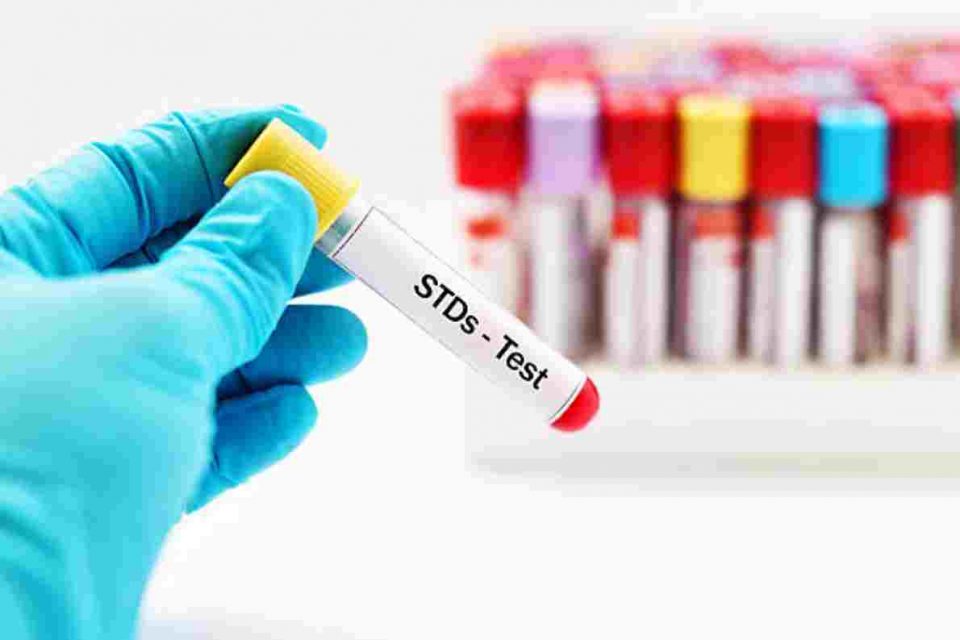The teen years are full of wonderful, bittersweet, and awkward moments. One moment your child needs you for everything, and then they’re standing in your kitchen looking all grown up. And though your teen may think they know everything, they still have a lot to learn from you.
There are many conversations that will feel awkward, but they are ones you should consider having. One of these is all about the “birds and bees.” You won’t die from embarrassment, even if you feel like you might. Your child will learn about it from other places, so set the tone and discuss this subject with them.
From talking about peer pressure, to consent, to STIs, try to cover it all. When it comes to sexually transmitted infections (STIs), make sure your teenager knows the following important facts.
Table of Contents
1. Know Your Status
It’s important to understand the risk factors of engaging in the “birds and bees.” Teenagers often feel invincible and that bad things won’t happen to them. Make sure they understand the risks that are possible. An unplanned pregnancy is a big one of course, but HIV and gonorrhea are also possible.
Talk to your child about self-efficacy and the importance of knowing your status. Oftentime people say they are “clean,” or don’t have an STI, but they have never been tested. They can’t know for certain. Before engaging in these acts with a new partner, make sure both partners know their status. There are even at home STI testing kits, so patients can get tested in the privacy of their home.
2. Communicate Your Status
Knowing your status is important and so is sharing that with your partner. Discuss the importance of honesty with your teen. If they discover they have an STI, be open with partners that might have been impacted. It’s the most ethical thing to do.
If they receive a positive test before becoming active with their partner, stress the importance of sharing their status. It can feel awkward, but it’s what’s right in terms of disclosing important health information that could harm others. Try not to be embarrassed; STIs are common and many are curable.
3. Understand Types of Protection
Getting tested is important, but it’s also important to understand how to protect yourself. Several types of birth control protect you against pregnancy, but may not protect you from STIs. The birth control pill, shot, IUD, and patch are all good options if you hope to prevent pregnancy. They do nothing to block infections, though.
Condoms and internal condoms are ways to prevent STIs. Think of it this way, anytime skin to skin contact with the genitals happens, you could get an infection. Be safe and use protection every time.
4. Know Types of STIs
Make sure your teen knows the types of STIs and which are the most severe. It could help them practice more self-control and utilize protection. Often people think of a huge life-altering disease like HIV. It can be easy to think that won’t happen to them. But there are many types that are possible.
In fact, chlamydia and gonorrhea are the most common amongst teenagers. These can clear up with antibiotics. However, genital herpes and HIV are not curable.
5. Decide Whether the HPV Shot Is for You
Teens can now get the HPV shot to help protect against various strains of the human papillomavirus. With minimal side effects, this can help prevent HPV in both males and females. It’s the most prevalent STI and affects teens and twenty-somethings the most. It can cause anything from genital warts to cervical cancer.
Teens as young as 13 can receive the vaccine. It’s most effective in prevention before the patient becomes sexually active as well. Discuss the shot with your teen and their healthcare provider. It’s important for their health and can also segway nicely into the rest of your STI talk.
6. Anyone Can Have an STI
It doesn’t matter your gender, age, or sexual orientation, STIs can happen to anyone. But some are more common or have more prominent effects, depending on your demographic. For example, HPV can be contracted and passed along by males and females equally. However, it can be more dangerous to females, as some types lead to ovarian cancer.
Some STIs are transmitted more frequently through anal, vaginal, or oral intercourse. Most are spread through fluids, such as blood, semen, and vaginal fluids. You don’t have to have penetrative intercourse to contract one. Talk to your teens about hygiene and prevention.
7. Doing Nothing Is Not a Smart Option
Sticking your head in the sand and practicing intercourse with reckless abandon is not wise. You put yourself and others at risk. Express to your teen the importance of taking care of themselves. This means trusting those they choose to make love with and always being sure consent is given.
Taking care of themselves also means seeking treatment, if they are concerned they have an STI. Not seeking treatment can have long term effects. For one, they could continue to spread infections or viruses to many other people. They could also develop severe medical complications themselves. HIV can turn to AIDS, chlamydia can turn to pelvic inflammatory disease, and HPV can lead to cancer.
Talking with your teens about adult consequences like STIs can be awkward. It’s worth being a little uncomfortable to make sure they have the facts they need to make informed decisions. From knowing their status to understanding protection and risk factors, your teen needs to take control of their health.
Having these uncomfortable conversations also helps teach your teen how to have hard and honest talks. You’re modeling that these things are necessary to talk about in an open manner. This can help them talk with future partners as well as understand the importance of it.

